Columbia College Chicago has concluded its third week of the ongoing strike. The Columbia College Faculty Union is striking due to decisions made by the institute that include changes in course offerings and increasing class sizes. CFAC is currently bargaining with the college for fair contracts and to get various class sections reinstated. The impact of the strike has caused a disruption in student learning and many have expressed disappointment with the school that they once held high admiration for.
Nina Stoner, a transfer sophomore film and television major, first discovered Columbia while attending Harper College in Palatine, after her brother, who currently attends the college, spoke so highly of it. After realizing she wanted to pursue screenwriting, Stoner deemed Columbia to be the perfect fit.
While attending Columbia, she fell in love with the dedicated faculty. When the strike began on Oct. 30, she was left confused but ready to support the union in any way she could.
“I actually went home and grabbed every single article of red clothing that I own. I’ve been wearing that to the one class that I have on Mondays,” Stoner said.
The past two weeks of disruptions have reminded Stoner of the somewhat similar disturbances that the COVID-19 pandemic brought just over three years ago. With some professors opting for Zoom during the strike, she felt stressed by the prospect of transitioning back to online instruction, and was unsure of where best to receive her news from about the ongoing negotiations.
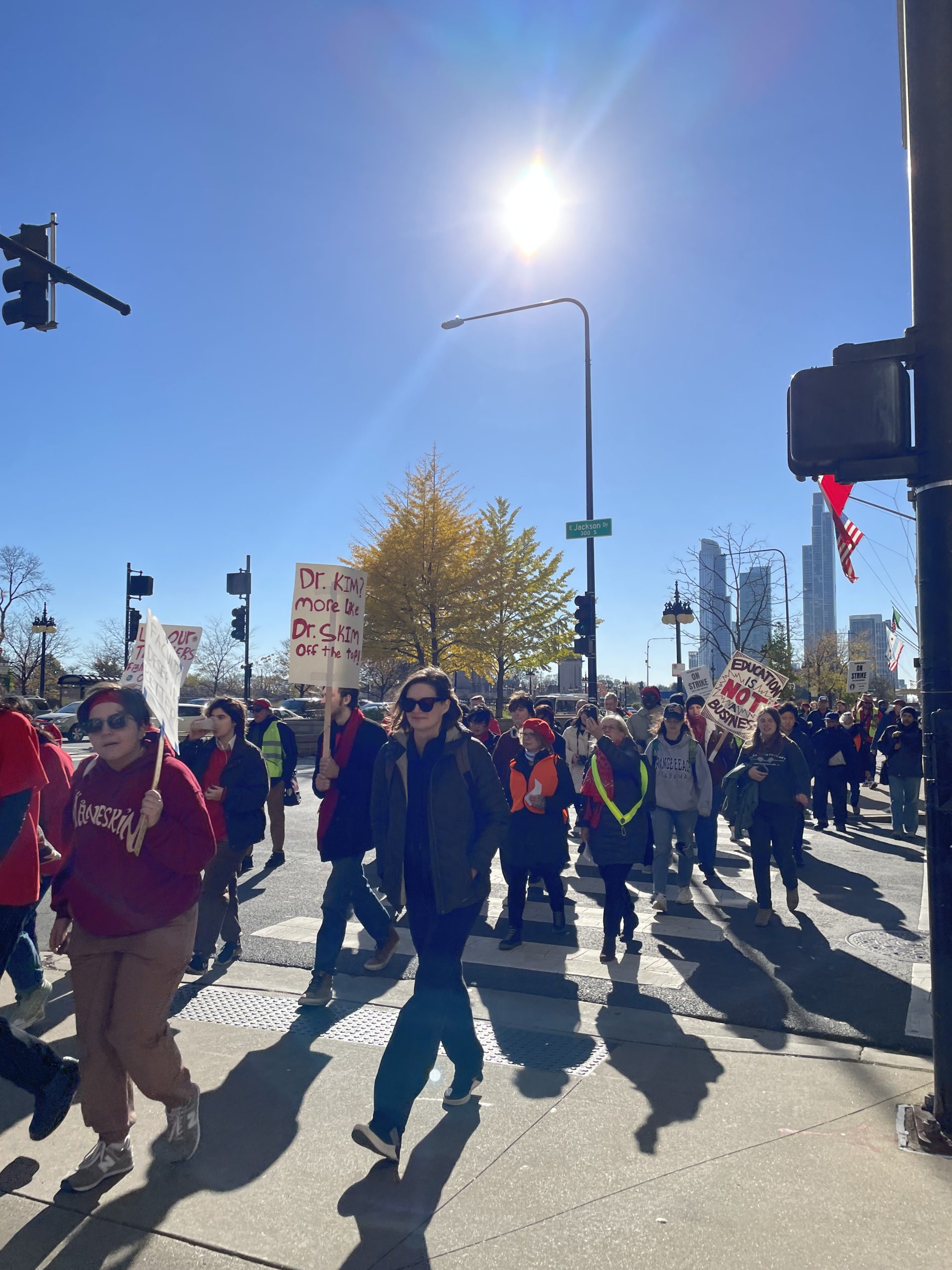
Some students said they have felt a lack of support and transparency from the faculty. Regina, a sophomore animation major and transfer student from Case Western Reserve University who asked to remain anonymous, came to Columbia for the close-knit relationships that the faculty have with students.
“I feel like out of everything that Columbia has to offer, it’s that one-on-one interaction with our faculty. I haven’t had that at any other university, or school, really. It’s incredible and also devastating that this is happening,” she said.
As a student with a disability, Regina believes there needs to be more information widely accessible for everyone. She sees an additional lack of information for students with disabilities.
“I think there needs to be extra information and extra resources specifically for students in this position. I noticed my symptoms getting worse, it just sucks and I feel like there’s not a lot of support for students right now,” Regina said.
For most of the information that the college sends out, there is typically additional context for students with disabilities. Regina has not received additional information for students with disabilities in regards to the strike.
“It’s already hard for us with disabilities, and then you pile on all the stress in this destruction. It amplifies things. I feel so behind in all my work too, I don’t even know how to catch up at this point if we do resume classes. I think it affects everybody differently but for me personally, stress levels can affect my condition,” she said.
The lack of clear and understandable information from the school is a common thread for a lot of students at this time, including junior comedy writing and performance major Wyatt Fritts, a recent transfer student from Oklahoma. He heard about the strike just days before it started, but does not feel well-informed on the situation.
“I hope the strike will be effective. I hope we will get the outcome we deserve. But I feel like there is still such little information we know about how negotiations are going, what they are exactly bargaining for, etc. I don’t really feel like I confidently say what I think will happen,” Fritts said.
The main concern for Fritts is the external pressure he feels because of the strike. Although he continues to go to class, he has lost the motivation he had pre-strike.
“My lack of motivation could impact my grades though,” he said. “Is it my fault? Maybe. I do procrastinate, but I also have this external stressor I cannot control — the strike,” Fritts said.
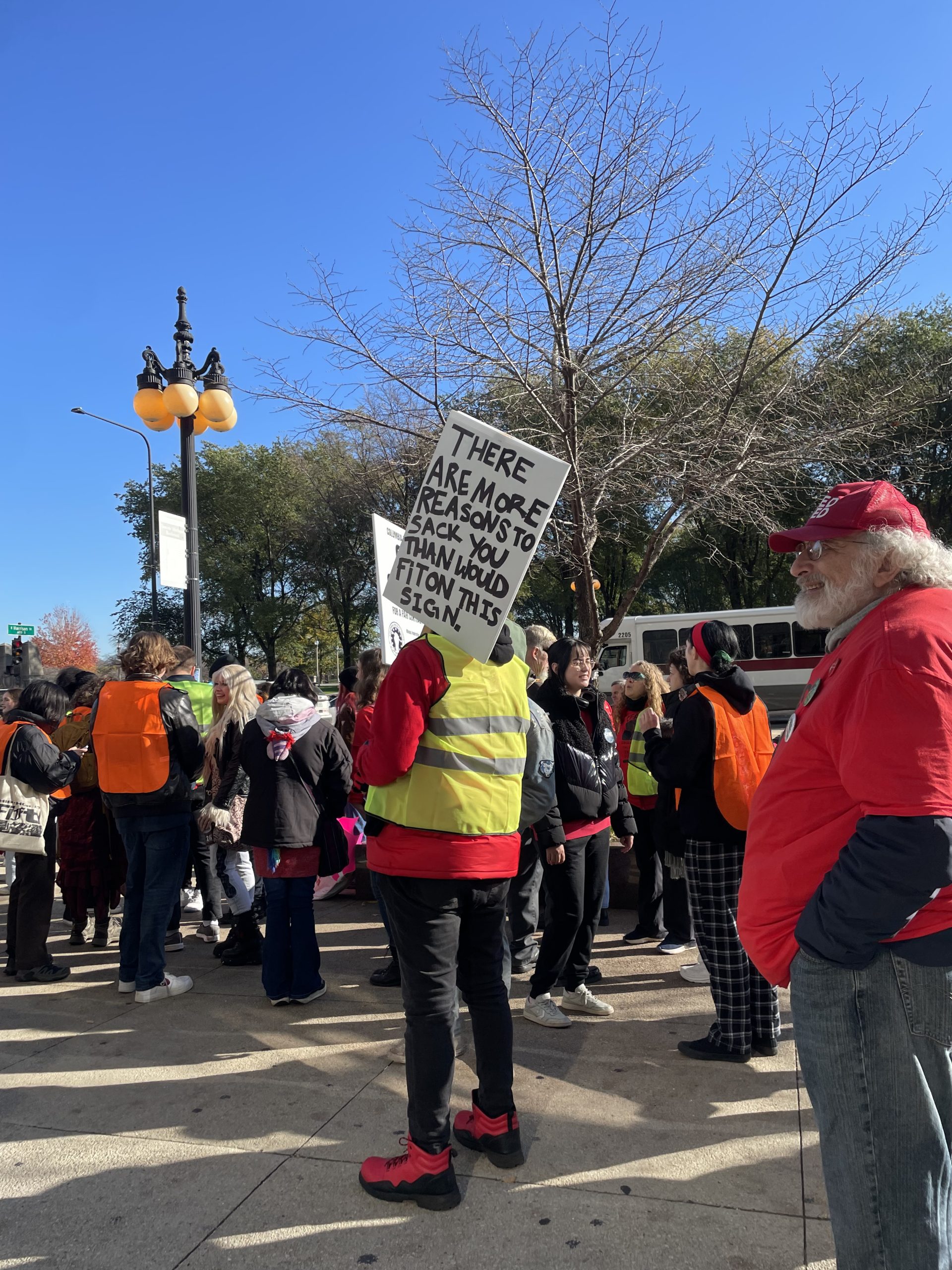
Some students are looking for alternative paths due to the uncertainty of the strike. This has especially been the case for sophomore fashion major Hannah Krumholtz, who began modeling as a side job during her freshman year and is now prioritizing that over her degree.
“When the idea of dropping out of college was first introduced to me by my model mentor, I was on the verge of tears purely because of anxiety. Going to art school and pursuing my artistic dreams has been something I have wanted since I was 7,” she said.
This decision was made weeks before the strike, which inadvertently solidified her confidence in her choice.
“I think I speak for all Columbia students when I say it’s important to follow your passion. At the end of the day, that is what brought us all here. We all knew coming to art school was a big risk. Just like me, taking a break from school is a massive risk. But I want to live my life with no regrets,” Krumholtz said.
Students have reached out to members of the college’s administration as a result of their confusion with the situation. Greg Foster-Rice, associate provost for Student Retention Initiatives, clarified why students may feel lost with the information being released from the college.
“Sometimes it may be a little confusing to students that there’s some people at the negotiating table who are sending messages, and those are about the direct negotiation between the union and the college,” Foster-Rice said. “That is one type of message. Then there are messages coming from academic affairs, which is the Office of the Provost, under which all faculty and all the teaching of the college resides. Those tend to be about how this is impacting students right now.”
Foster-Rice acknowledged that students have felt an overwhelming amount of stress and anxiety due to a lack of clear information.
“We recognize that students are concerned at this point after three weeks of no classes. With how they’re going to get the learning that they want and deserve in their classes, as well as the credits towards a degree that they have been paying for,” he said. “I would just encourage students to reach out to their faculty and if they don’t hear from them, to reach out to their departments to see what’s happening in their classes because things are changing all the time.”
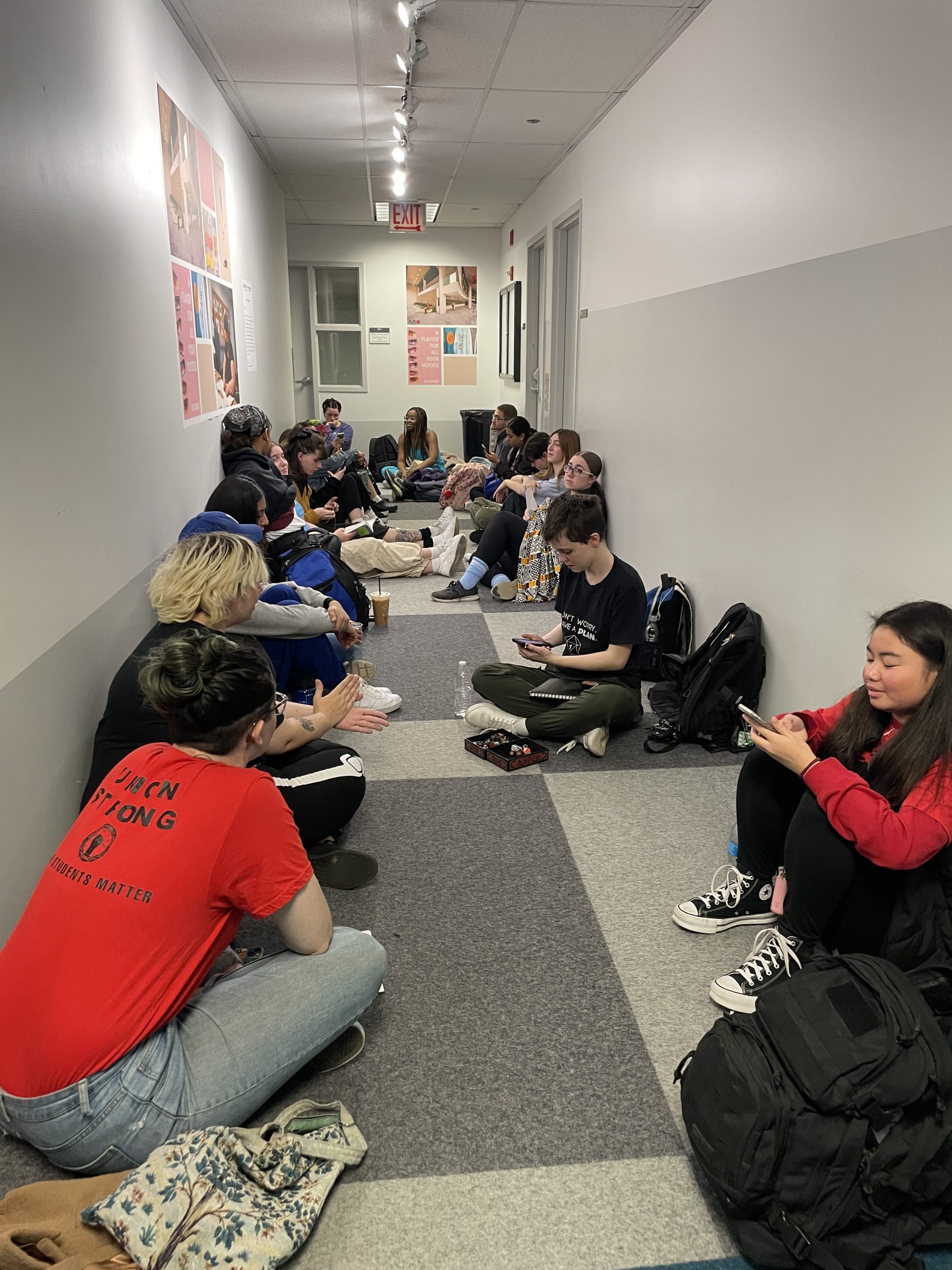
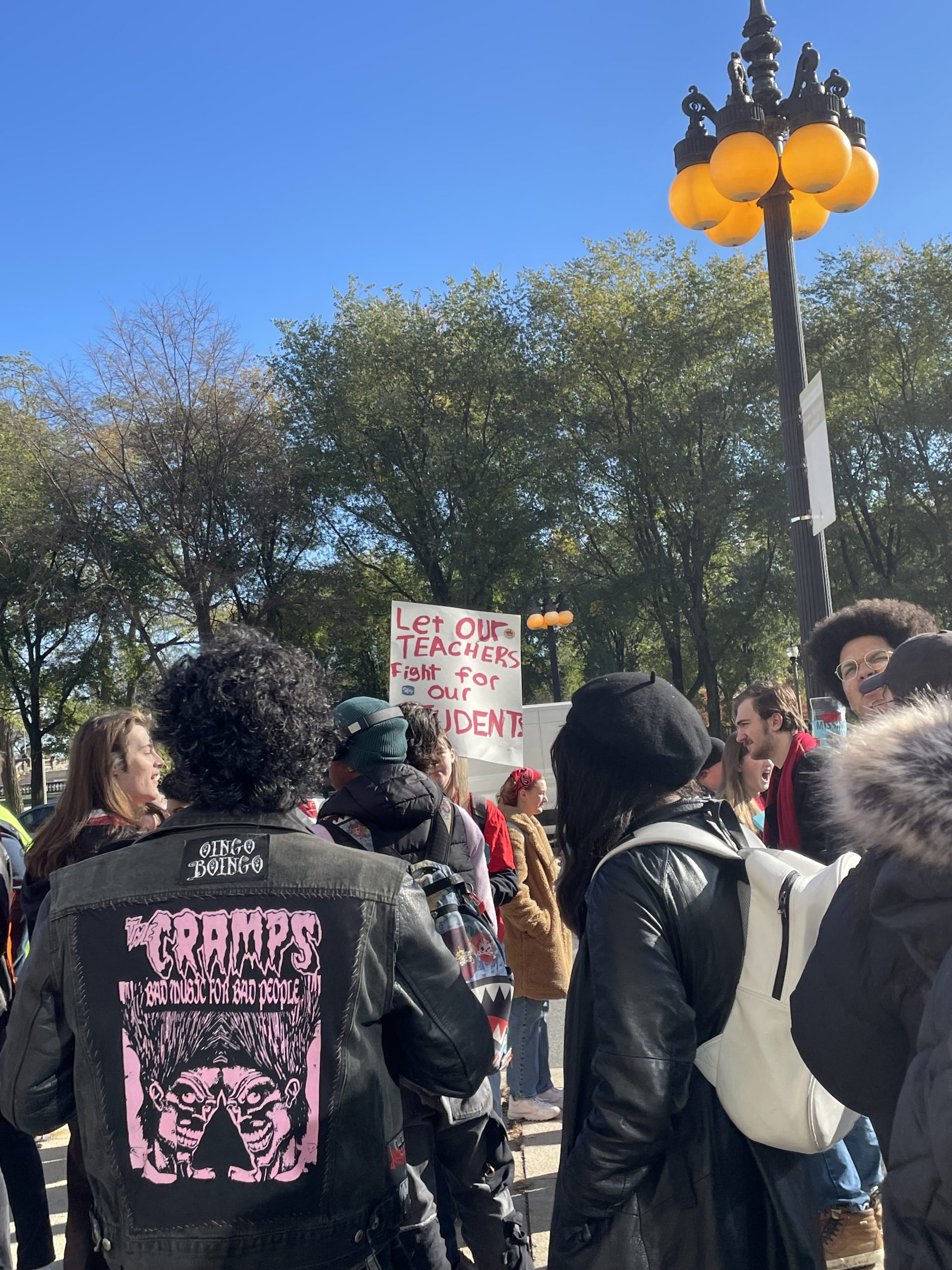

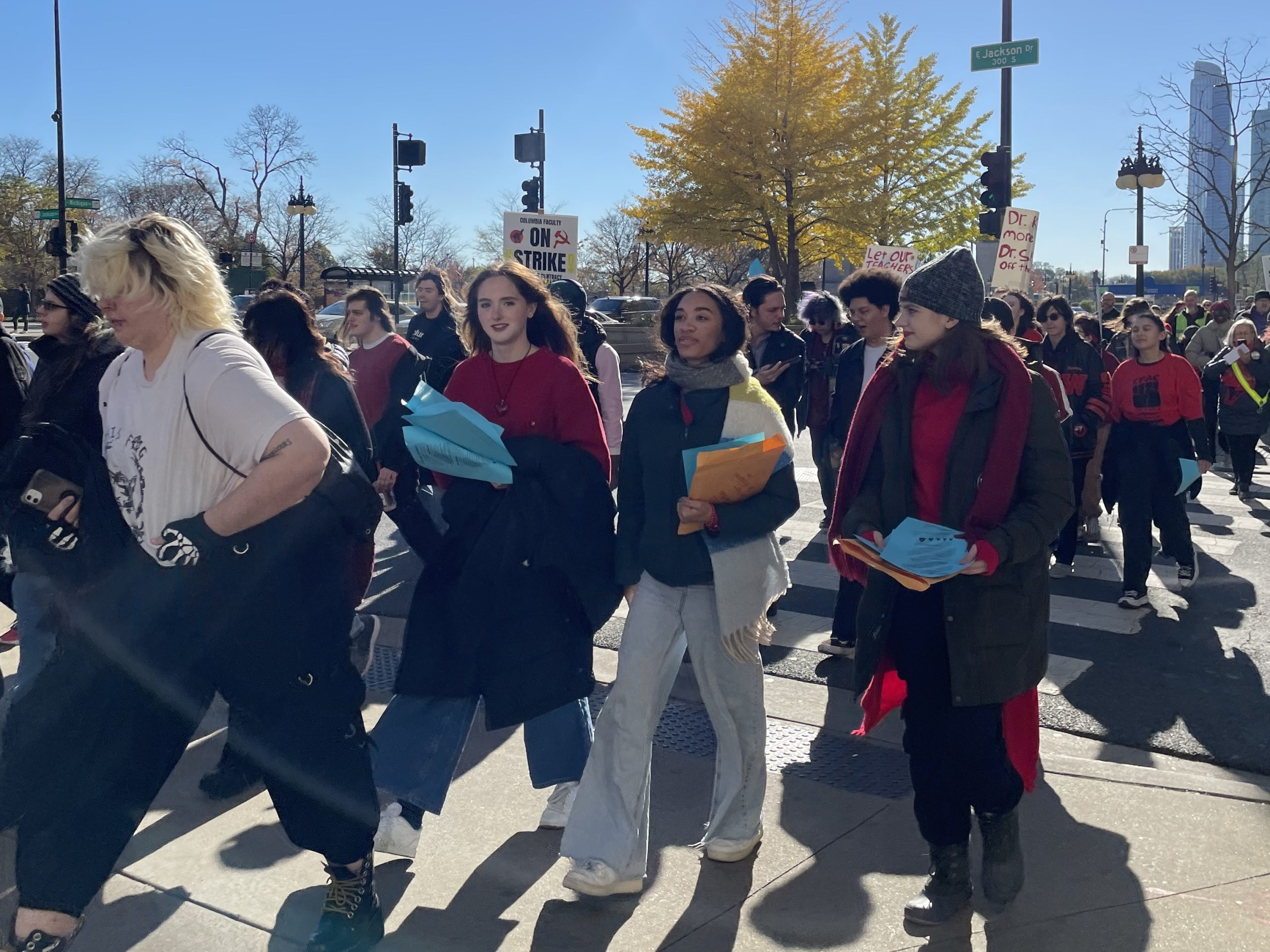





Be First to Comment